Number Sequencing Normal Math Worksheets for 5-Year-Olds
6 filtered results
-
From - To
Welcome to our engaging collection of Number Sequencing Normal Math Worksheets designed specifically for 5-year-olds! These worksheets help young learners master essential counting skills while developing their understanding of order and patterns. Each worksheet is thoughtfully designed to capture children's imagination, encouraging them to practice sequencing numbers through fun activities and vibrant illustrations. By using these resources, kids will enhance their math readiness, reinforce critical thinking, and build confidence in their numerical abilities. Perfect for classroom use or at-home learning, our worksheets provide an interactive and enjoyable way for children to explore the exciting world of numbers!
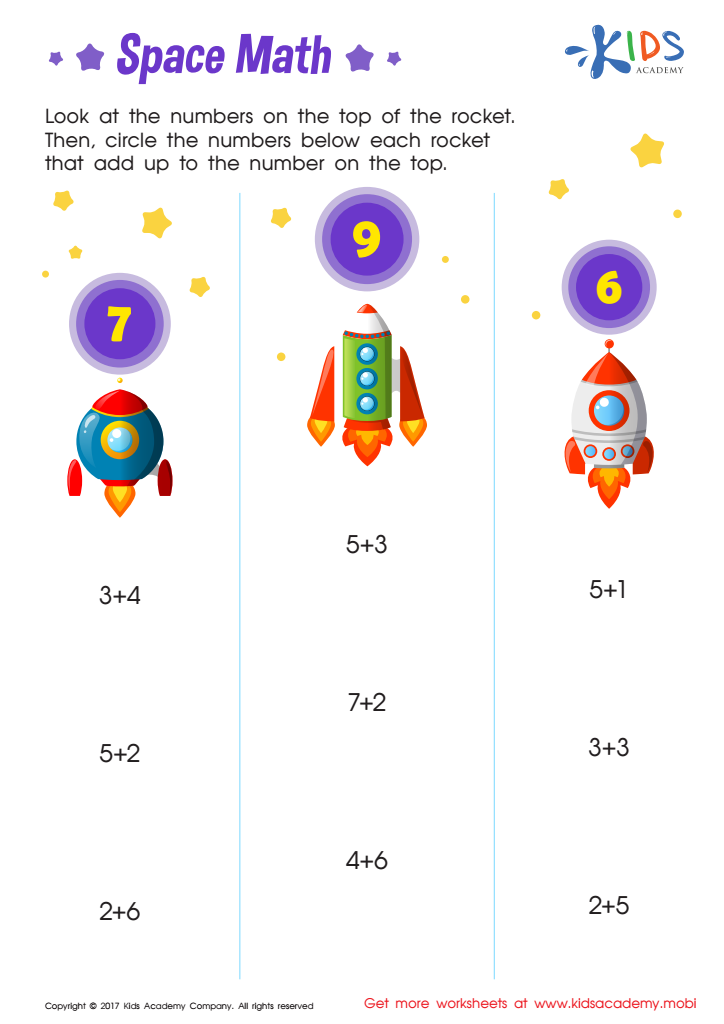

Addition: Space Math Worksheet
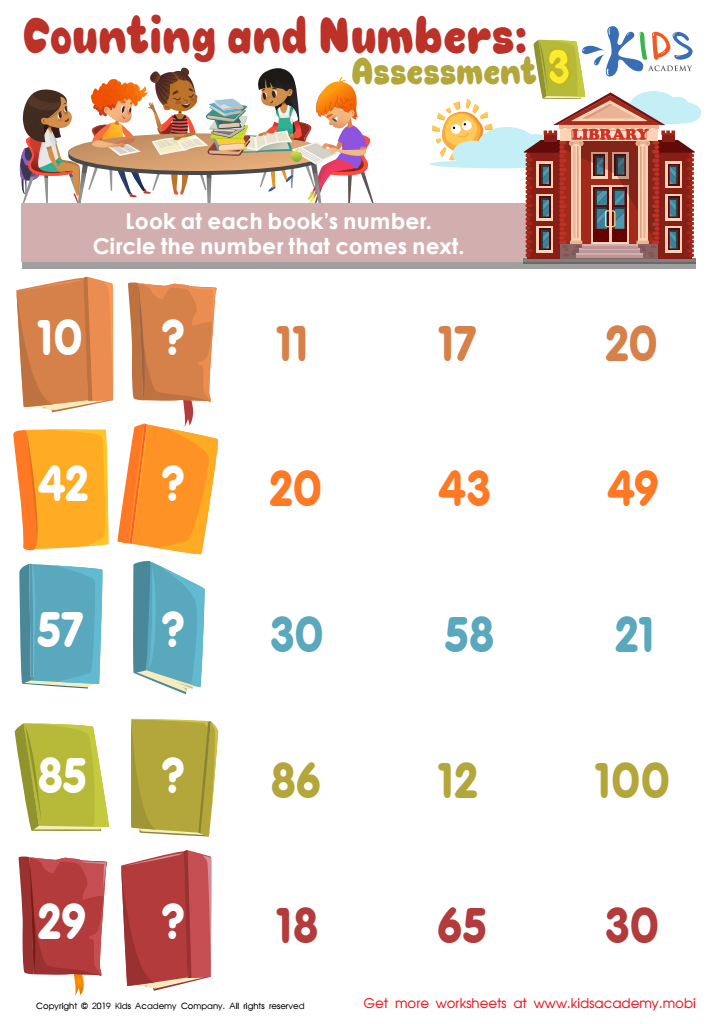

Counting and Numbers: Assessment Worksheet
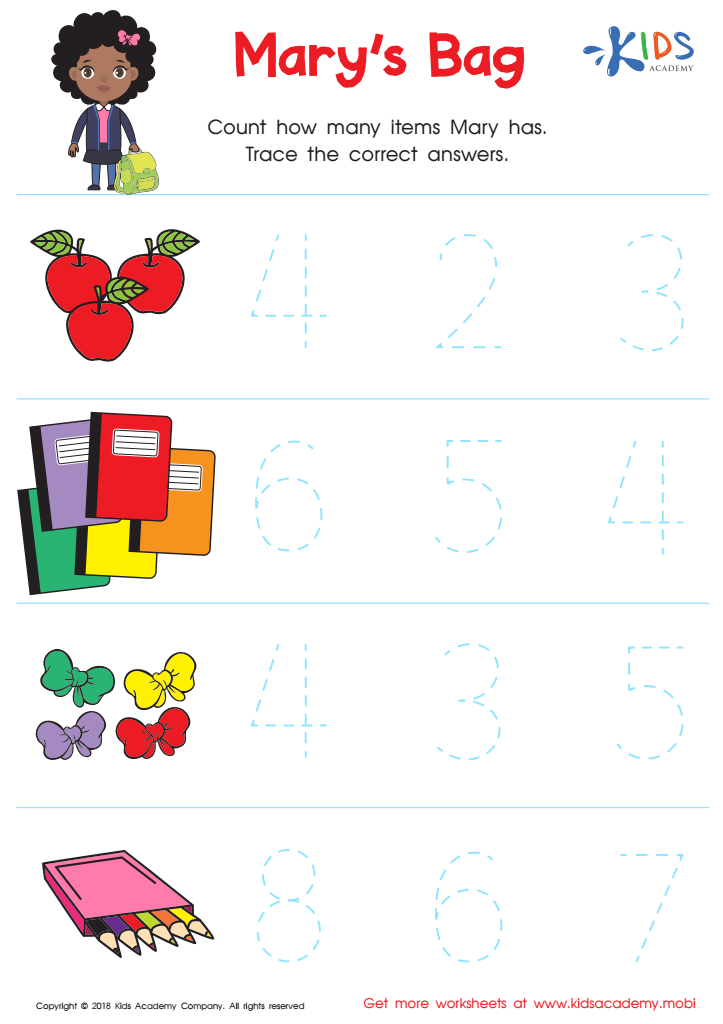

Kindergarten Number Tracing: Mary's Bag Worksheet


Frog Countdown Worksheet
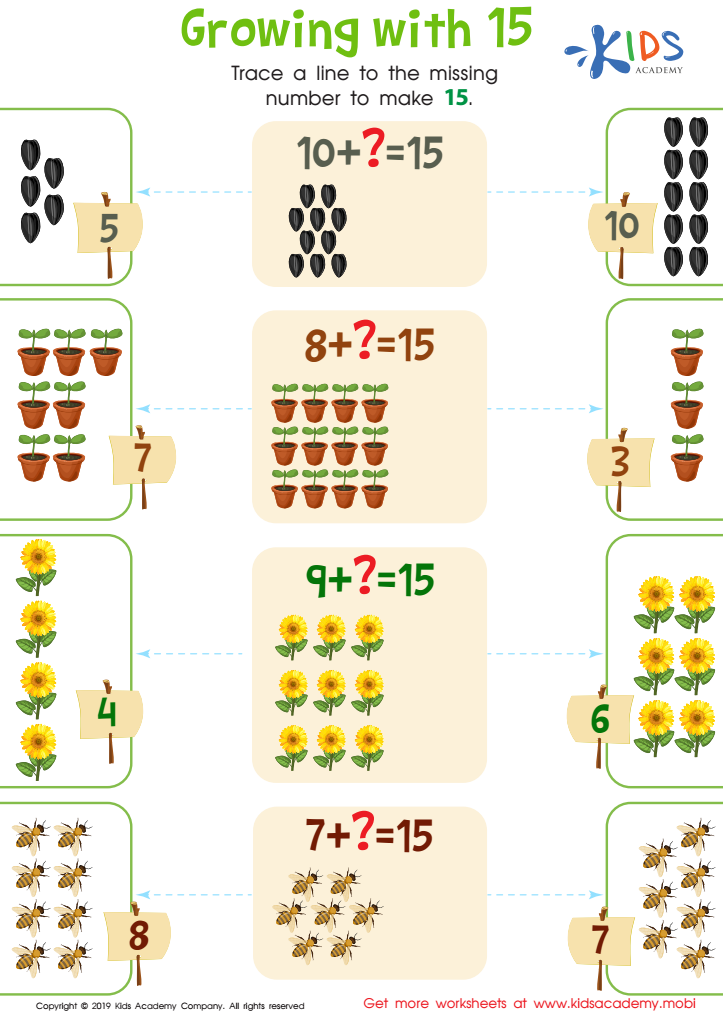

Growing with 15 Worksheet
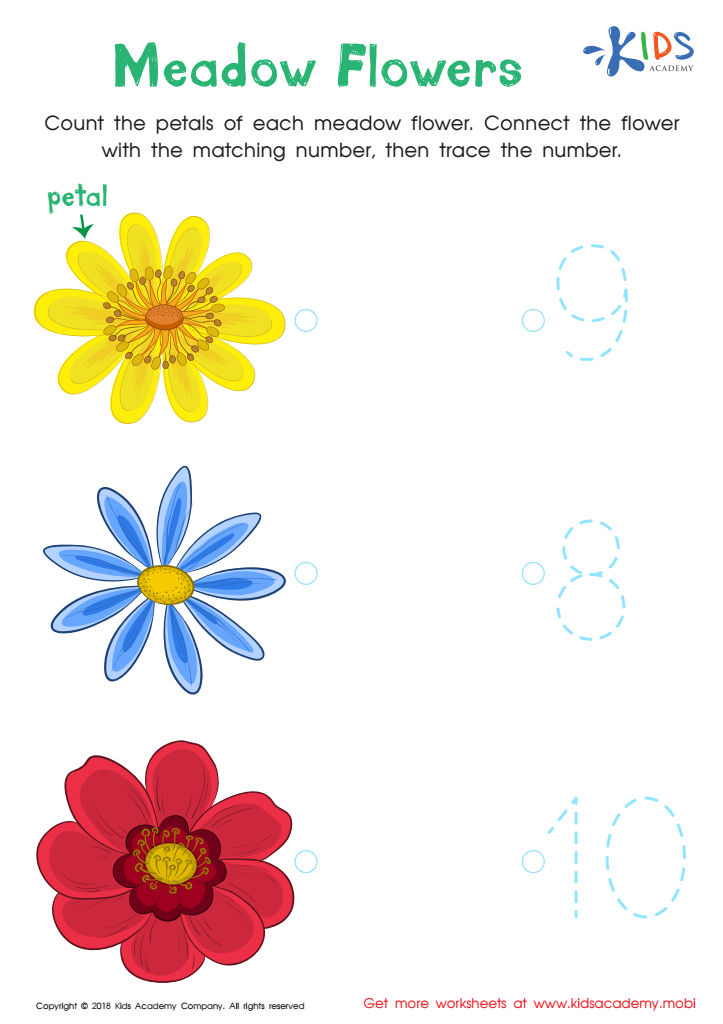

Kindergarten Number Tracing: Medow Flowers Worksheet
Number sequencing is a fundamental math skill that plays a crucial role in a child's overall cognitive development. For 5-year-olds, mastering this skill forms the building blocks for future mathematical concepts, including addition, subtraction, and problem-solving. Understanding number sequences helps children recognize patterns, which enhances their analytical thinking and logic.
Parents and teachers should care about number sequencing because it fosters confidence in young learners. When children can order numbers and understand their relationships, they feel empowered to tackle more complex mathematical challenges as they progress through their education. This foundational skill also promotes early literacy in math, helping them make sense of everyday situations that involve numbers, such as counting objects or telling time.
Moreover, number sequencing encourages fine motor skills and memory retention. Activities that involve arranging numbers sequentially can be both engaging and interactive, making math fun. By incorporating number sequencing in play and learning, parents and teachers can instill a positive attitude towards math from an early age, ensuring that children not only learn but also enjoy the journey of discovering numbers. Investing time in this area will pay dividends as children advance through school and confront increasingly intricate math topics.
 Assign to My Students
Assign to My Students





















